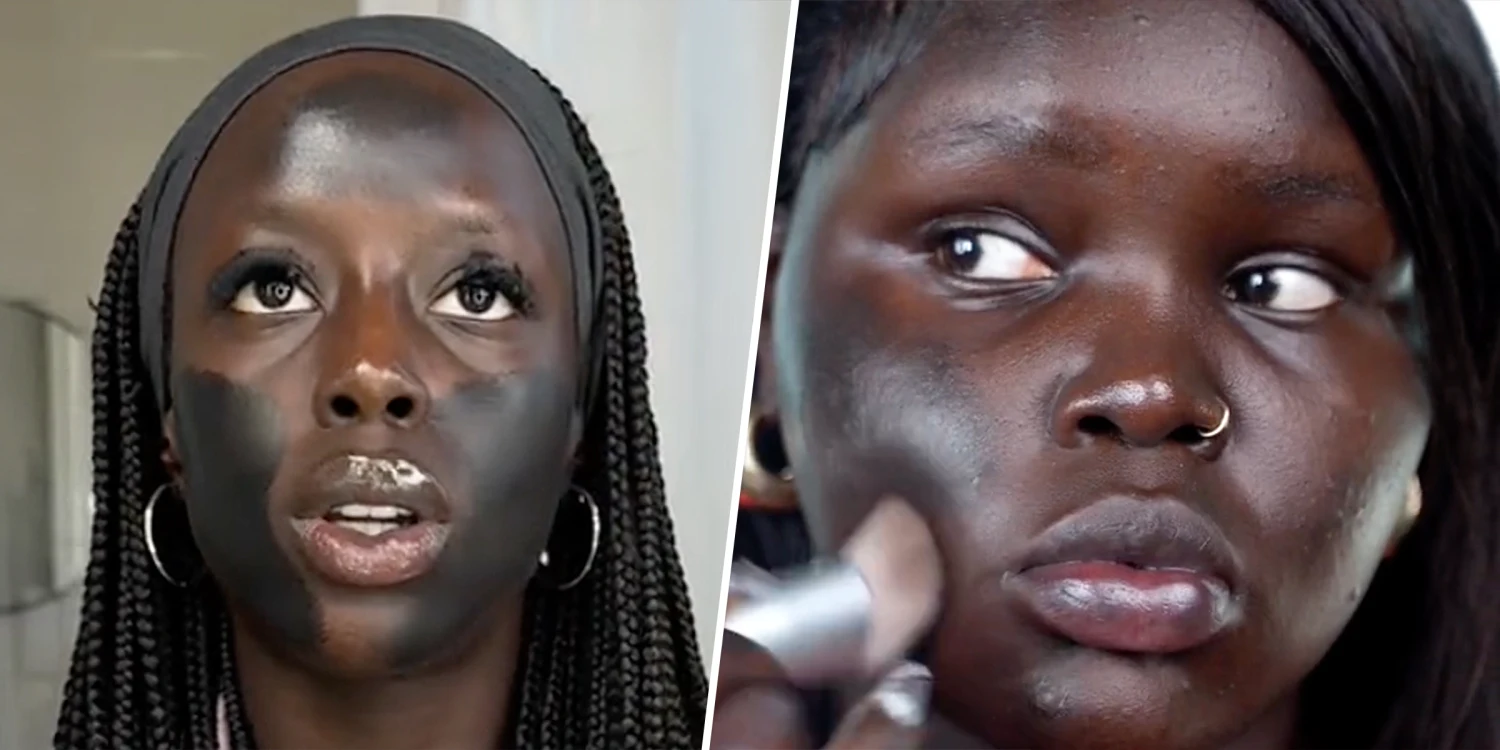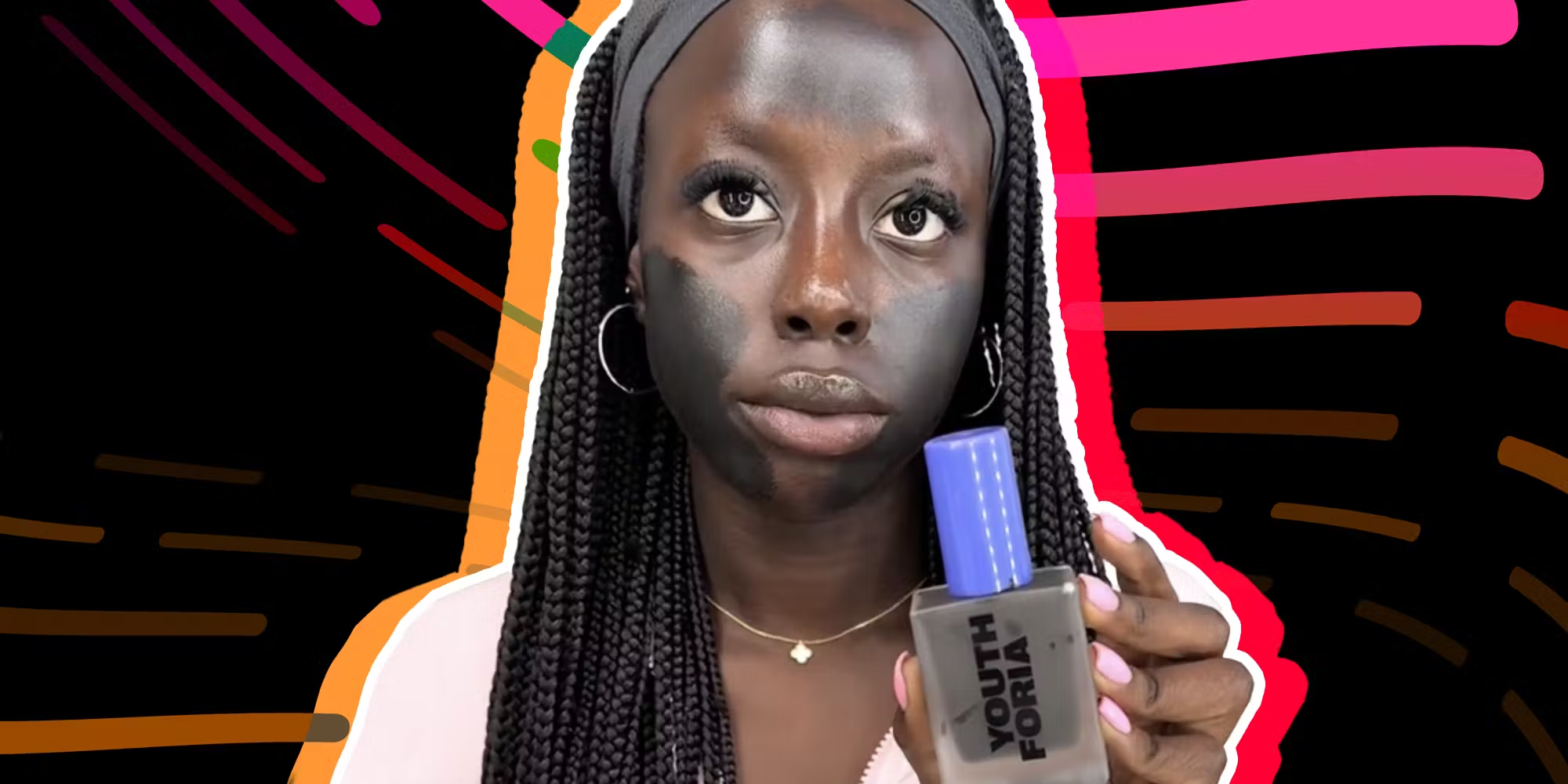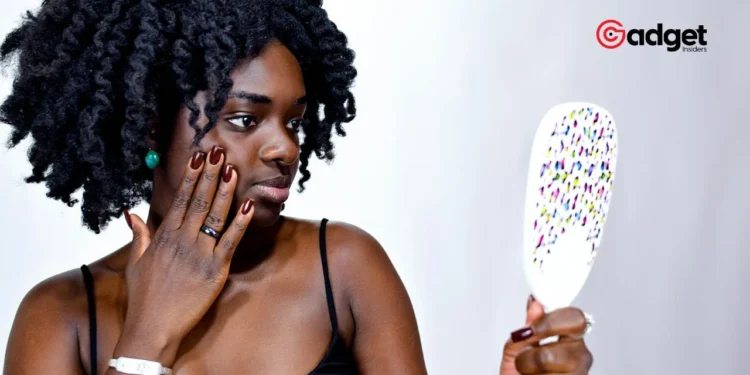In a world that increasingly demands diversity and inclusivity, makeup brands are under the microscope more than ever. Recently, the cosmetic brand Youthforia found itself at the center of a heated controversy over its foundation shade range, particularly its darkest shade.
Marketed as “deep neutral” and numbered “600,” the shade has sparked a backlash among consumers and influencers alike, for its startling resemblance to black face paint rather than a wearable makeup product.

Youthforia: Viral Critique Exposes Flaws
Golloria George, a well-known beauty influencer, brought the issue to light in a TikTok video that quickly went viral, amassing over 18 million views. George starkly compared the foundation to actual black face paint by swatching them side-by-side on her face.
Her reaction was one of disbelief and disappointment. “Which side of my face is the black face paint or the Youthforia foundation?” George questioned her audience. “Tea, you can’t tell.”
This stark comparison underscored the inadequacy of the shade’s formulation. George criticized Youthforia not just for the shade itself but for the noticeable gap in the shade range. The second-darkest shade, she pointed out, was significantly lighter than shade 600, indicating a lack of options for those with darker skin tones.
“When we say that we want you guys to make shades for us, we don’t mean to go to the lab and ask for minstrel show black,” George said in her video. “What we mean is to take the Browns that you have made, create undertones, and do what you need to do in the lab. So it’s a darker shade of brown.”

Community Response and Industry Impact
The reaction from the TikTok community was mixed, with some users agreeing with George’s critique, while others suggested that there might indeed be individuals who could match the controversial shade.
This division highlights a broader issue within the beauty industry—a lack of consistent, thoughtful representation in product ranges, especially for darker skin tones.
Youthforia’s misstep is not an isolated incident. The beauty industry has a troubled history with diversity, reminiscent of Tarte’s 2018 Shape Tape Foundation launch, which featured a mere four shades for tan and darker skin tones out of 15, and IT Cosmetics’ 2020 Bye Bye Foundation line, which offered only three shades suitable for darker skin out of a 12-shade range.
This youthforia controversy is showing me that some people(non-black ppl) genuinely think that dark skinned black people are ACTUALLY black…like JET black…I have no words…like they’re out here trying to defend the company for having BLACK FACE PAINT as a foundation color…huh? pic.twitter.com/MZcMR9FsDT
— hi (@Boredandtiredok) May 1, 2024
Looking Forward: The Push for Inclusivity
As market research from Mintel in 2022 indicated, nearly half of beauty consumers prioritize diversity and inclusivity when choosing brands. Claire Hennigan, a senior analyst, noted that inclusivity in the beauty industry would likely influence future trends not just in product diversity but also in pricing, making beauty more accessible to all.
Youthforia’s current predicament offers a clear lesson: the beauty industry must listen more attentively to its consumers and adapt accordingly. The demand for a more inclusive range of shades is not just a passing trend but a significant shift toward recognizing and respecting the diversity of beauty consumers worldwide.
As the debate continues, brands like Youthforia need to take swift action, not only to amend their current offerings but also to prevent such oversights in the future. The brand’s response, or lack thereof, to this controversy, will likely influence consumer trust and brand loyalty. As the beauty industry evolves, so too must the brands that wish to lead in it, ensuring that all consumers feel recognized and valued.










